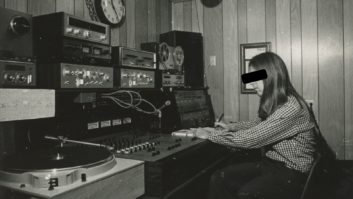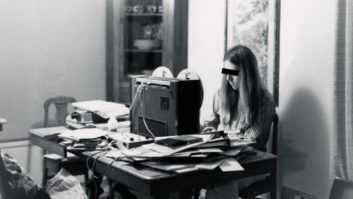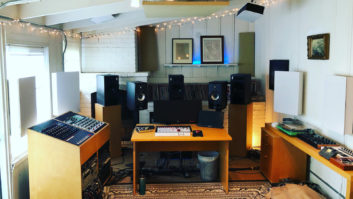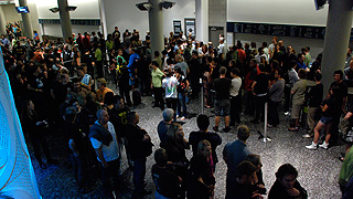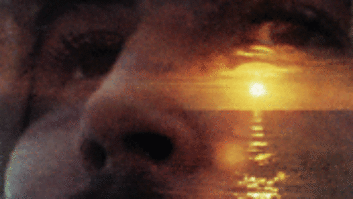Ken Douglas
When digital piracy first slammed the recording industry in the late Nineties, the record companies weren’t alone in feeling the pain; the Internet wiped their illegal brethren—bootleggers—completely off the map. Since the late 1960s, music bootleggers had operated in the shadows, creating illegal LPs and CDs crammed full of concerts, outtakes, demos and more. Today, soccer moms have taken their place, posting YouTube cell-phone videos of the Bon Jovi show they saw last week.
Much of the bootleg industry’s history—and the start of its slide into oblivion—was documented in Clinton Heylin’s classic 1995 book, Bootleg: The Secret History of the Other Recording Industry, but now a co-creator of the first bootleg, the illicit Bob Dylan double-LP, Great White Wonder, has begun sharing his own side of story. Mega-booter-turned-mystery author Ken Douglas has started recounting his adventures in the seamy underbelly of the music industry…and what a tale he tells.
Putting his writing talents to good use, Douglas highlights all the romantic details you’d imagine—hippies in stylish sports cars, toting guns and meeting odd characters late at night as they transfer boxes of contraband LPs in the middle of nowhere. But there’s also an air of ridiculousness on hand when the tales start including child brides, bees nests, parents meddling with their adult sons’ bootleg business, being one of a handful of white kids in the chorus recorded for James Brown’s “Say It Loud: I’m Black and I’m Proud,” and more. And given the time period and underground nature of the efforts, Douglas recalls enough controlled substance use to make Cheech and Chong look like Boy Scouts.
Are all the stories true? Douglas candidly admits that he doesn’t remember it all perfectly after 40 years, and given the amount of mythology, secrecy and outright lying that, by necessity, surrounded the bootleg scene, it’s fair to wonder if anything happened quite the way Douglas tells it. That said, he’s a gifted storyteller with a wonderful sardonic tone, and his tales are spun so well that after a while, veracity becomes a moot point.
So here’s a little bootlegging of our own, reprinting part of Douglas’ story behind the legendary 1969 Rolling Stones concert bootleg, LiveR Than You’ll Ever Be. Reviewed by Greil Marcus in Rolling Stone, the album was praised at the time for its sound quality, essentially forcing the Stones to release their own official live album, Get Yer Ya-Yas Out, which was generally met with less enthusiasm. In fact, the bootleg became so popular (and was copied by competitors so often) that it’s now estimated to have sold over 500,000 copies—enough to earn a Gold Record in the real record business. The excerpt below is just a taste of Douglas’ full story; the complete version, complete with mob guys, guns and more, can be found on his website.
LiveR Than You’ll Ever Be
I remember one time, I got to Dub’s place in the middle of the afternoon and he had this huge, orange, egg shaped, fiberglass chair with a stereo built into it. Chris was ensconced in the egg, listening to the Stones, lost in Mick And Keith Land.
“Look what I got.” Dub held up this flute-looking affair—and for a second, that’s what I thought it was.
“Wonderful,” I said, trying to hide my ignorance.
“Sennheiser shotgun mike.” He waved it around the way Obi Wan would wield a lightsaber a couple of generations later. It was obviously very expensive.
“I always wanted one of those,” I said.
“Who wouldn’t?” Dub hadn’t heard a drop of the sarcasm in my voice. He was like a kid who’d just found the present of his dreams under the Christmas tree. I half expected to hear Brenda Lee break out with ‘Jingle Bell Rock’ as he handed the mic to Chris.
“Neat, isn’t it?” Chris said from the chair as Mick started out on ‘Honky Tonk Woman.’
“I don’t know about the mic, but that chair looks pretty f***in’ neat.”
“Try it.” Chris jumped up, holding the mic like a sword.
I got in the chair and I must admit, the sound from that baby was just about the best you could hope for. The Stones were blasting away in my little world, but outside that chair, they didn’t sound much louder then a clock radio. Amazing.
“That’s enough.” Chris grabbed my hand, jerked me out of the chair. He really did like the Stones.
Uher 4000
“Got this, too.” Dub pulled a small tape recorder out of a box that was sitting next to his latest amp. “Uher 4000 seven-and-a-half inches-per-second reel-to-reel tape recorder. State of the art.” Those were Dub’s favorite words in those days, “State of the art.”“What are you gonna do with that?”
“Chris and I are gonna record the Stones. Got tickets for five shows.”
“You and Chris?” I shook my head. Recording our own show was something new. It was one thing to get a tape and put it out, but actually going to the concert and recording it? This was heady stuff and it sounded dangerous.
“I know what you’re thinking, but don’t worry: I’m gonna paint the mic flat black. No one’s gonna see it in the dark.”
I looked down at Chris in that chair and I swear to heaven and all the angels above, nobody had ever worn a wider smile. I didn’t know if it was the music or the prospect of seeing them live. Probably both.
So Dub and Chris went on tour with the Stones. They recorded the Los Angeles, San Diego, Oakland and Phoenix shows. In fact, they were on the same plane with the band when they left Phoenix. Chris couldn’t have been happier.
I sat around and watched them work when they got back. I was good with a splicing bar, Dub was better. There was a lot of fighting, arguing, wrangling about what songs were gonna go on the record. There wasn’t enough for a double LP and Dub didn’t want to cram so much music on the disc that it would lose quality. Unlike me, Dub was a perfectionist; he wanted this record to sound like you were really there.
And he had the equipment to do it. He was the first kid on his or any other block to get an equalizer. I remember when he brought it home from Radio Lab. I also remember how upset he was when it didn’t perform the way he thought it should. He fired off an unflattering letter to the company, saying that he was gonna come over and tell them in person what they could do with the turkey they’d developed. Immediately, he got a reply back from one of the engineers, saying that he had a two-by-four waiting to crack over Dub’s head the second he showed up.
He took the machine back to Radio Lab, got another that worked the way he deemed it should and used his magic ear to make LiveR Than You’ll Ever Be the best live LP released by any band, ever. To this day, nobody—not the Rolling Stones themselves, or anybody else—has been able to match that record for sheer presence. The music is violent. It rips from the speakers, cuts to the soul. Dub belongs in the Rock and Roll Hall of Fame for that record.
Have a favorite bootleg from back in the day? Share your thoughts below!
